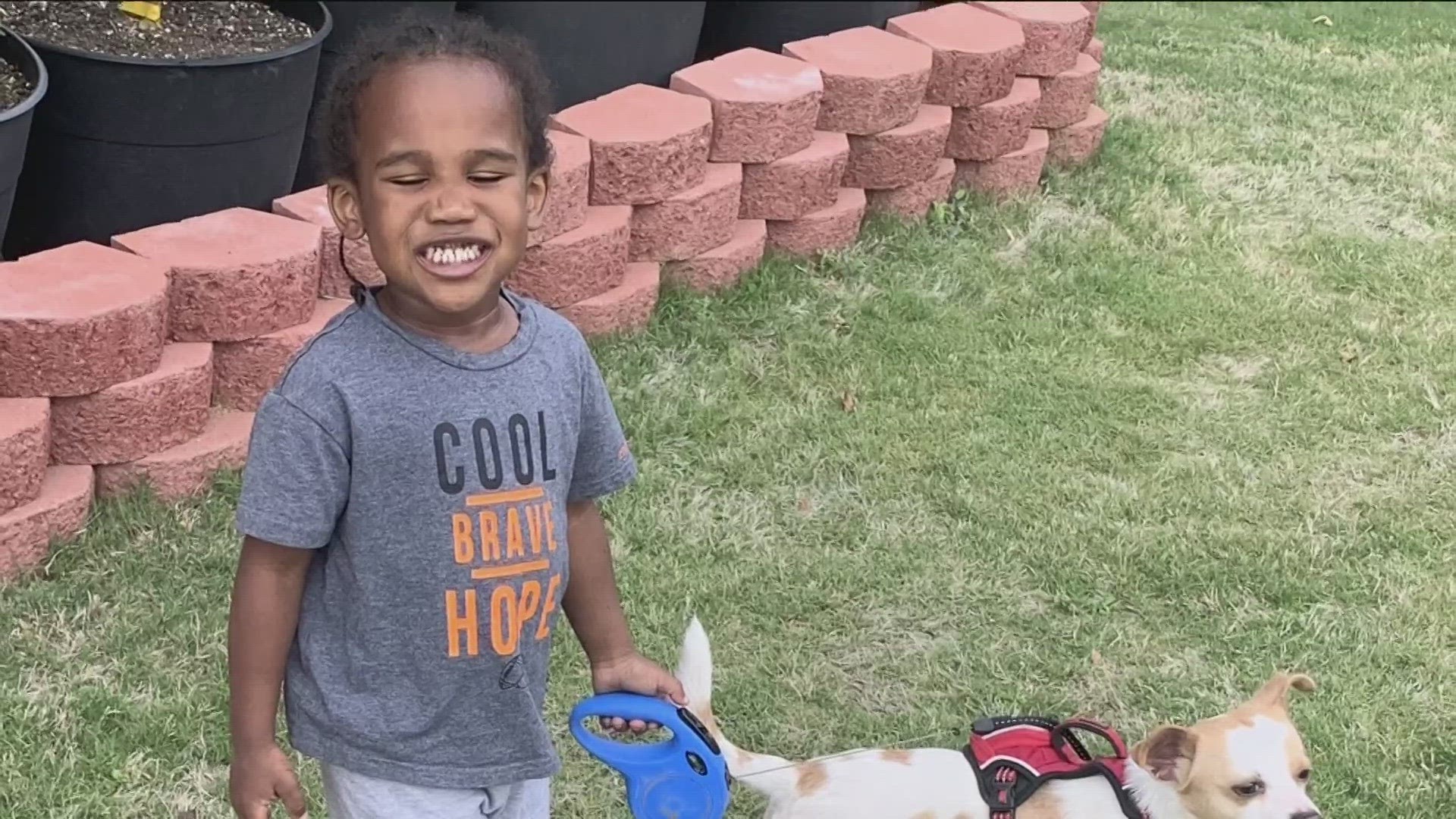ATLANTA — One in six children in the U.S. are living with a developmental disability, according to the Centers for Disease Control and Prevention. But while early intervention is key to a child's development, experts say there are not enough providers to meet the need for Georgia's children.
It's an issue Courtnie James-Harris knows all too well after seeking help for her 4-year-old son Connor, who lives with autism and sensory issues.
"When we first started our journey, it was like nobody to help," James-Harris said of the attempts to get into a clinic or program to help Connor with delayed speech and behavioral needs.
"The waiting list was six months to a year. Some were even longer than that," James-Harris said. "It's frustrating. It's upsetting. It's unbelievable that the resources that we lack, and I say 'we' as in everywhere. It's not just here in Georgia, it's everywhere."
Meanwhile, Connor struggled to communicate his basic needs as James Harris and the family also struggled to understand the young child.
"He still wasn't talking. It was still grunting, the anger, the fighting, all of that," she said.
While Connor briefly participated in "Babies Can't Wait," Georgia’s early intervention program, James-Harris said her son aged out within six months (BCW serves Georgia children from birth up to their third birthday).
Ultimately, Erica Wilson, a speech language pathologist, was the "game changer" James Harris had been waiting to find.
"Before he came here, he had no voice," she said. "It was the different screams, the different grunts."
"We get to start at the beginning, and it's like seeing a miracle unfold in front of you," Wilson explained of the process of working with kids like Connor. "Every child wants to feel special. They want to feel heard."
Wilson and specialists work to give children that voice, but she agreed there are not enough therapists to meet the need.
"We do have a shortage of therapists," she said. "There's a long waitlist parents are sitting on."
That indeed means families are left in limbo, sometimes for months, Dr. Nicole Hendix with Marcus Autism Center, told 11Alive News of the issue.
"There is thus a call to action for our state systems and universities to support providers in learning how to provide early intervention services, particularly for young autistic children with unique needs," she said. "State systems and universities also must work to help these providers feel supported given high turnover in these systems of care."
The team at Voices for Georgia's Children has also been advocating for changes to better meet the demand for services.
"Early intervention can make a big difference in how children are able to relate to the social world. So the sooner we can get a child to receive services, the better off they'll be," Dr. Caitlin McMunn, executive director of the nonprofit, explained. "One of the ways that that we've been advocating for services is by creating a more robust workforce and ensuring that the reimbursement rates themselves are comparable to other market rates so that the providers themselves get a better rate in return for their services."
Cost of services can indeed be a barrier to care even for families with insurance, Wilson said, especially if there's a need for multiple therapies.
"A lot of families don't just need speech therapy. They need occupational therapy, ABA therapy," Wilson said. "It adds up."
Wilson is among the network of RiteCare clinics in Georgia supported by the Scottish Rite Foundation. The group has a long history of helping families with scholarships for speech needs.
"Being able to take some of that financial difficulty away has made all the difference," Wilson said of the support.
Ultimately, James-Harris left her job in order to better advocate for her son's needs, and she's grateful to now be among Wilson's families. As Connor thrives and works on everything from speech to tying his shoes, she also feels for other parents still waiting.
"It's heartache because I know it's a long journey, and if they stop calling, your child won't get what they need,' James-Harris said. "You're your child's voice. You're your child's advocate. You've got to keep fighting."
If your family is still on a waitlist, the Marcus Autism Center offers the below resources:
While families are on waitlists, connect with other families who have already navigated accessing services and supports. FOCUS, Telic Empowerment, Parent to Parent of Georgia, and SPECTRUM are places to start within the Atlanta metro area. Many of these groups also provide free online webinars about topics helpful for families, such as how to access supports.
There are also simple strategies families can use to help their children to communicate and to be a part of activities at home. These are strategies with lots of research support that many early intervention specialists use. These include:
Let the child choose what to do, and let their interests lead the activity. Watch the child to see what and how the child wants to play. Join in their play by becoming a needed part of it. For example, if a child is building a tower, give them the blocks or take turns putting blocks on the tower.
Talking about what a child is doing, seeing, and hearing. The more we describe what we are doing together with children, the more likely they are to understand language and try to use it themselves.
Copy what you see your child do. Many children like to be imitated and pay more attention when they are imitated—leading to them being more likely to copy what families are teaching them. For example, if the child is jumping up and down, jump with them. Imitate children’s sounds and add to what they say. For example, if your child says “bah” while throwing a ball, repeat and build off of that sound by saying, “Ball!”
Families can also learn more about some of these simple strategies for free here.

